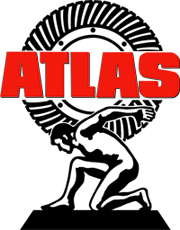Information
-
Date/Time:
-
Facility:
- Louisville
- Cincinnati
- Evansville
- Columbus
Section 1 - General
-
1.1 Employees lifting correctly with object weighing less than 50 lbs., employee using team lift technique if object is more than 50 lbs., or is awkward to lift.
-
1.2 Employees exhibiting no signs of horseplay such as running, jumping, throwing objects, etc.
-
1.3 Employees are loading and unloading machines without the use of excessive force.
-
1.4 Employees who are servicing, repairing, or cleaning equipment and are in the point of operation have the equipment locked and tagged out.
Section 2 - Housekeeping
-
2.1 Aisles are unobstructed and properly marked.
-
2.2 Lighting is adequate for task work and workstations.
-
2.3 Areas are clear of debris, hoses, cables, cords, and shavings. No water or fluid in walking/working surface.
-
2.4 Aisles are clear of trip hazards. Hoses, cables, cords, pallets, work in progress, etc.
Section 3 - Personal Protective Equipment
-
3.1 Safety glasses with sideshields worn properly. Welding helmet/lens and barrier screens used as needed. Safety glasses and shields worn while grinding.
-
3.2 Proper gloves worn as indicated by the operation.
-
3.3 Clothing is secure, not dangling. No loose jewelry.
-
3.4 Hearing protection used during appropriate operations.
Section 4 - Machine Guarding
-
4.1 Guards are in working condition. Works as designed.
-
4.2 Physical guards securely fixed to equipment. Not easily removed.
-
4.3 Machine controls guarded to prevent accidental activation. Warning signs posted as appropriate.
-
4.4 Safety circuits and sensors function as designed, easily accessible, clearly identified, and properly marked. ( sensors, emergency stops, light curtains, door switches.)
Section 5 - Material Storage
-
5.1 Material is stacked so it is stable.
-
5.2 Storage racks are bolted to the floor, in good condition, and pedestrians are protected if working on the backside of a storage rack.
-
5.3 Walkways, aisles, and restricted areas are clear of material storage.
-
5.4 Material is being stored in the correct location.
Section 6 - Chemicals/Waste Management
-
6.1 All containers are labeled to identify contents. (Proper manufacturer, HMIS, NFPA, or GHS label)
-
6.2 Chemicals are stored in appropriate areas/cabinets when not in use. Corrosive material stored separately from flammable materials.
-
6.3 MSDS or SDS are available for all chemicals.
-
6.4 Waste separated and disposed of properly.
Section 7 - Fire Protection and Prevention
-
7.1 Extinguishers marked/labeled, in place, hung on bracket, inspection tag indicating monthly and annual service date, signage present on wall/column, and pressure indicator in the green zone.
-
7.2 Fire response equipment and electrical panels accessible (36" clearance in front.)
-
7.3 Exits not obstructed either inside or outside, lighted exit signs visible, doors operate properly. Can you see a exit sign from where you are standing?
-
7.4 Flammable material properly stored.
Section 8 - Powered Industrial Trucks
-
8.1 Operator wearing seatbelt while operating PIT, belt in good condition, no knots and/or worn areas.
-
8.2 Propane tank securely mounted, no leaks noticed.
-
8.3 If unattended, forks lowered and parking brake set. Operable fire extinguisher, horn, back up alarm, and warning lights. No visible leaks or damage.
-
8.4 Daily pre-shift checklist has been completed.
Section 9 - Electrical
-
9.1 All electrical panels clear 36" to the front.
-
9.2 Panels closed, covers over any empty slot.
-
9.3 Absence of spliced /frayed cords. Ground prongs in place. Extension cords used only as temporary wiring.
-
9.4 Cords are routed to prevent damage or are protected.
Section 10 - Walking/Working Surfaces
-
10.1 Ladders are being properly used, warning and load labels visible, and no damage present.
-
10.2 Stairs are well lit, in good repair, and covers are over any open slots.
-
10.3 Floors are level, without holes, damage, water, oil, debris, or unnecessary material. Material shavings are picked up on properly disposed of in the required container.
-
10.4 Platforms are clear of debris and have required safety railings.
Section 11 - Overhead Cranes and Rigging
-
11.1 Overhead Cranes are properly marked with load rating and free of damage.
-
11.2 Daily pre-shift checklists have been completed.
-
11.3 All lifts have approved rigging load capacity for the load weight being lifted.
-
11.4 All rigging is in good shape without damage, load capacity label visible, and unused rigging is returned to the proper location.
Section 12 - Other
-
Comments:
-
Add media
Signature
-
Auditor Name/Signature
-
Manager Name/Signature











